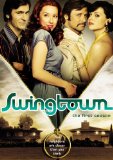| Reviews & Columns |
|
Reviews DVD TV on DVD Blu-ray 4K UHD International DVDs In Theaters Reviews by Studio Video Games Features Collector Series DVDs Easter Egg Database Interviews DVD Talk Radio Feature Articles Columns Anime Talk DVD Savant Horror DVDs The M.O.D. Squad Art House HD Talk Silent DVD
|
DVD Talk Forum |
|
|
| Resources |
|
DVD Price Search Customer Service #'s RCE Info Links |
|
Columns
|
|
|
Swingtown - The First Season

The Series
When Phoebe Cates stepped out of the pool and took off her top in 1982, a legion of boys and men across the world sat stoned faced, drool dripping down to their knees. The scene from Fast Times at Ridgemont High failed to get a rise out of yours truly, but don't cry for me: 27 years later, I sat stoned faced, drool dripping down to my knees as I watched underappreciated actor Josh Hopkins take off his top by the pool in the seventh episode of Swingtown. The scene transformed his character Roger from a shy, meek, lost-in-the-background husband to sexy leading man in a matter of seconds.
I've got to hand it to a show that knows how to utilize its, um, assets so well. And when a series can make me gasp out loud--and then laugh out loud--in the first 10 seconds of its pilot episode, you just know its doing something right. Throw in hordes of sexy skin and a super groovy theme song from Liz Phair ("Give it up for love!") that I let replay over and over again as I stared at the DVD menus, and Swingtown is off to a smashing start.
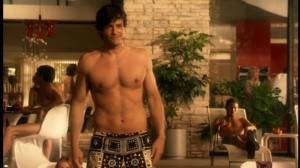
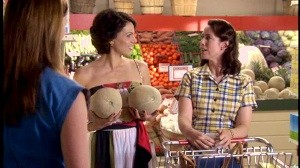
Creator Mike Kelley--who has written and/or produced shows like Jericho, The O.C., One Tree Hill and Providence--used his own childhood memories as the starting point for this risqué series, a mix of The Ice Storm, That '70s Show, Boogie Nights and Dazed and Confused. The show is like an adult version of something on The CW--it mixes Ice Storm-like suburban angst with sexy storylines and juvenile behavior to keep us entertained (and--like with its frequent flashing of muscular pecs--I'm not complaining).
It's the summer of 1976, and Susan Miller (Molly Parker) is moving into a new, bigger home with successful stock broker husband Bruce (Jack Davenport). They're soon befriended by partying neighbors Trina (Lana Parrilla) and Tom Decker (the perpetually shirtless Grant Show), an open-relationship couple whose swinger parties quickly lure the Millers in. The move--along with the Millers' rise in status and expanding social circle--saddens Susan's best friend Janet Thompson (Miriam Shor), a tightly wound bundle of manners and structure who has a routine marriage with salesman husband Roger (Hopkins).
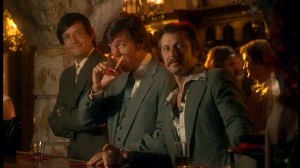
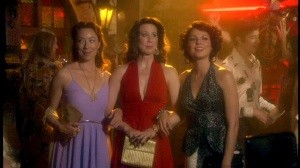
While the first few episodes establish each character's role, we quickly learn that there's a lot more to each of them than first impressions would indicate. Susan's realization that life might not be as perfect as it seems provides the main arc for the show--and the catalyst for much of its subplots. Having married her high school sweetheart when she was 16, Susan hasn't explored much in life--an error the Deckers are happy to correct: "It's not cheating--it's the opposite, actually," explains Trina of her open relationship. "Everything's already on the table. There's no sneaking around, no lies...ever since we got into it, Tom and I have reached the whole other level of intimacy."
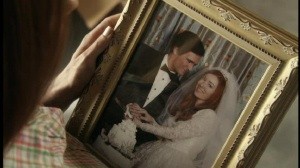
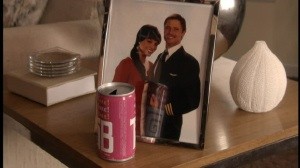
But the Deckers aren't so easy to pin down, and neither is Janet, who slowly starts to expand her mind as she learns more about the Millers, the Deckers--and her husband, who (like Susan) longs for something more. Almost every character has a wandering eye, and as the series progresses they all become more relatable, thanks in part to the great performances by the cast.
The women shine in their drastically different roles, injecting believable honesty to their increasingly complex characters: Parker is the real heart of the show, and she perfectly conveys Susan's sense of love and loyalty--qualities slowly being broken down by her dreams and desires. Meanwhile, Shor gets to show off more layers of Janet with each episode--we go from finding her annoying to cheering for her (a scene between her and a co-worker in Episode 12 is heartbreaking). And Parrilla thankfully prevents Trina from being a one-note vamp--like Janet, you think you have her pegged, but she surprises you.
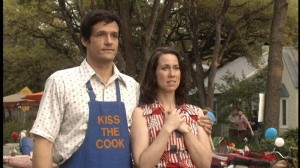

Meanwhile, the men do a good job of supporting the leading ladies: Show is perfect as the life of the party who may be wearier than he lets on, and Hopkins slowly comes out of the shadows to steal the limelight as Roger comes out of his shell. Davenport is perhaps the toughest to warm up to as the bland Bruce, who becomes less sympathetic as the series progresses.
Far less interesting are the stories of the severely neglected children (I constantly heard the voice of The Simpsons Maude Flanders in my head while watching this: "What about the children?!"). The Millers 17-year-old daughter Laurie (Shanna Collins) is smitten with summer school teacher Doug (Michael Rady from The Sisterhood of the Traveling Pants films), who looks about as young as she does (perhaps making their budding relationship more "acceptable" for viewers). Younger brother B.J. (Aaron Christian Howles) has a crush on hardened neighbor Sam (Brittany Robertson), whose alcoholic mom (Kate Norby) is the town tramp. Meanwhile, the Thompson's annoying son Rick (Nick Benson) spends most of the time getting punched in the face.
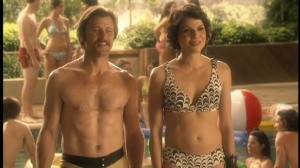
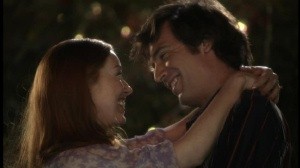
Both generations epitomize the signature themes of the '70s and the show: sexual discovery, feminism, experimentation, change, loss of innocence. I was born in '73, so I don't have much recollection of the "Me Decade". While I can't really vouch for the show's authenticity, Swingtown takes any opportunity it can to throw out '70s pop culture and political references (Tab! Carter! Nadia! Leif! Charo! Hawaii Five-O!). It's a hoot to see the wardrobes, hairstyles, sets and props, which all do a great job of transporting you back in time, part of the show's charm. Then there's the music, which is frequent and fantastic. In addition to legendary classics, the show has to be commended for integrating songs like "Hooked on a Feeling", "Our House" and "Midnight at the Oasis" (!!!) without making them sound cheesy.
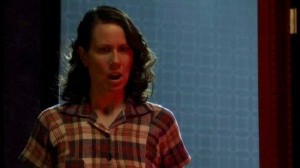
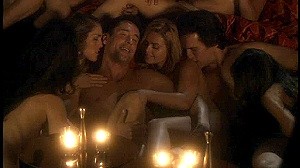
If you can look past some of the show's more hard-to-swallow scenarios and developments--including the overall premise (swingers are never this sexy...have you seen the documentary The Lifestyle?!)--it's easy to get lost in the moment and just enjoy it. Swingtown builds steam with each hour; you'll find yourself falling for these characters and investing in their future. Things get a lot more complicated and interesting in the last few episodes, and you can't wait to see what the writers have in store: an exciting new relationship finally explodes after a lot of teasing, one couple faces a new challenge and a few characters finally start to break free.
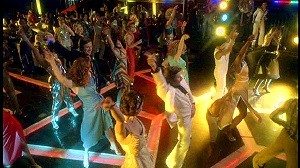
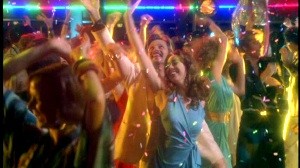
That makes it hard to stomach that CBS hasn't renewed the series--all we're left with are these 13 episodes. This is an adult show (one episode revolves around the Deckers' fundraising efforts for Harry Reems!), and I was surprised at some of the material the network was able to get away with (sex and drugs); I also loved every suggestive line (my favorite: "I'd love to see your darkroom!"). The show even makes the viewer a constant voyeur, as many shots are framed behind windows (mirrors are also frequently used), putting us front and center as a suburbia spy.
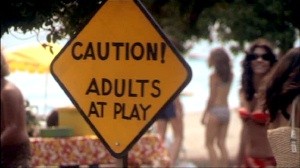
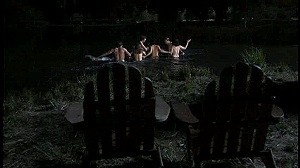
But considering the show's central theme revolved around swinging couples, what other fate was possible on network TV? Swingtown initially started as a cable channel concept, and I can't help but be a little angry at CBS executives for hijacking it--the series stood a much better chance of survival on a cable station.
While the show is far from perfect and isn't always relatable or believable, it's a damn entertaining watch, and has enough memorable lines about life, both heartfelt ("I read somewhere that falling in love happens when someone sees you like you see yourself") and humorous ("Men are like light bulbs...you keep screwin' until you find one that works!"). I really want to follow these characters in the future--there are so many stories that could have been told, so many interesting turns the show could have taken. And just think of all the potential shots of Josh Hopkins in various states of undress, all of them left unfulfilled. Sigh...a true tragedy, indeed.
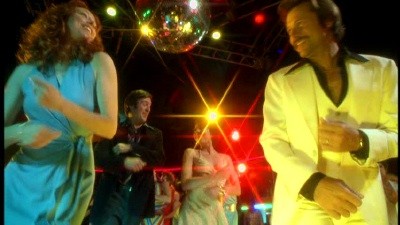
Episode Guide:
The 13 episodes (about 41 minutes each) are spread across four discs:
1. Pilot (aired 6-5-2008) Susan and Bruce Miller move into an upscale Chicago suburb, where they are introduced to the concept of an open marriage by their sexy new neighbors.
2. Love Will Find a Way (aired 6-12-2008) Bruce celebrates a great day on the trading room floor by attending a party at the Playboy Club; Tom gets a promotion to fly the new route to Tokyo, but Trina worries about what it will do to their relationship; Janet entertains her new neighbors and realizes how important her friendship with Susan is; Samantha runs away from home; Laurie attends a play with Logan, but she's embarrassed by his behavior.
3. Double Exposure (aired 6-19-2008) Susan tries to mend her friendship with Janet by asking her to help plan a housewarming party, but Trina intrudes with a bloated guest list and an unconventional idea; Laurie spends the evening in a closed library with her teacher.
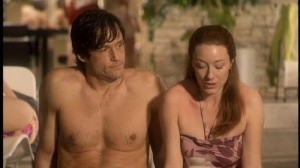
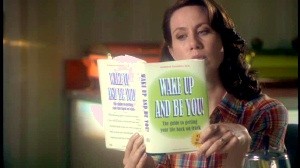
4. Cabin Fever (aired 6-26-2008) Susan and Bruce invite the Deckers to join them for a weekend getaway at their two-bedroom cabin when the Thompsons back out of the trip. Later, things really get cozy when Roger and Janet change their minds and decide to drive up to the cabin. Meanwhile, Laurie invites Doug over to her parentless house for dinner, and B.J., Samantha and Rick break into the Deckers' house.
5. Go Your Own Way (aired 7-3-2008) Against Bruce's wishes, Susan attends a fund-raiser at the Decker's house to benefit an actor in a controversial movie.
6. Friends with Benefits (aired 7-10-2008) Tom gets jealous when Trina meets up with her high-school sweetheart; Susan attends a ladies' luncheon to help promote Bruce's career, but it's Janet who makes the biggest impression at the gathering; Roger is fired from his job; Laurie and Doug get physical in their relationship.
7. Heatwave (aired 7-17-2008) Tom throws a pool party on a blisteringly hot day, but Trina is steamed about his recent affair. Things get more heated when Susan arrives with Roger, who is seeking advice from her upon losing his job. At the office, Bruce gets intimate with a coworker, Melinda.
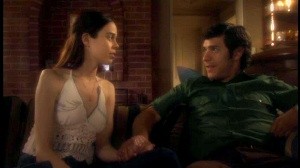
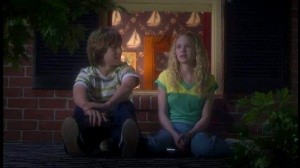
8. Puzzlerama (aired 7-24-2008) Trina hosts a "Puzzlerama" party where mismatched couples attempt to discover game clues based on dark secrets in the neighborhood.
9. Swingus Interruptus (aired 7-31-2008) Laurie and Doug interrupt her parents' "after party" with Brad and Sylvia.
10. Running on Empty (aired 8-8-2008) Bruce and Susan plan a trip to the cabin to spend time with each other and their kids, but Laurie has her own plans to meet Doug; Janet and Roger visit a therapist.
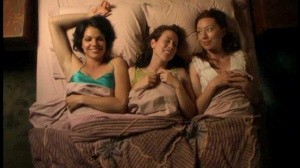
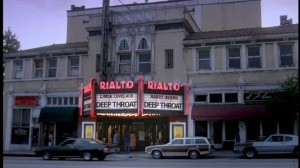
11. Get Down Tonight (aired 8-15-2008) Tom and Trina teach the Millers how to line dance; Janet takes a job with a local newspaper.
12. Surprise! (aired 8-29-2008) Roger and Susan plan a surprise party for Janet, but the celebration includes some additional surprises that are more shocking than festive..
13. Take It to the Limit (aired 9-5-2008) The first season ends with Trina and Tom hosting a clambake and key party to celebrate the end of summer.
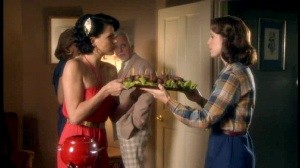
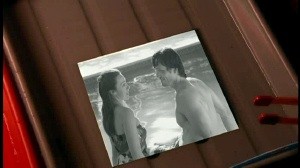
The DVD
Video:
The series arrives in an anamorphic widescreen transfer that looks beautiful. It has an intentionally soft look, and is bathed in shades of brown. Notes executive producer Alan Poul: "We wanted it to have a 'filmed' look...I didn't want it to look the way most later-day depictions of the '70s look, which is they go very, very warm with the colors. We were looking at something much cooler, and much more subtle and perhaps a little de-saturated, more like the way real life looked in the '70s, not like the way the movies of the '70s looked in the '70s." Director of photography Joaquin Sedillo adds that the series went for a combination of soft, realistic, artistic and "comfortable".
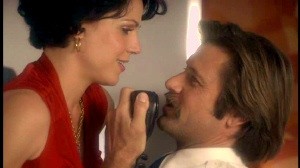
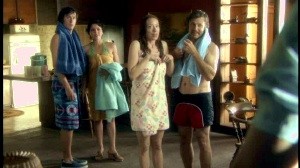
Audio:
The 5.1 track (a 2.0 stereo option is also available) is fantastic, and is used to great effect throughout the series. Much of the action takes place outdoors, and the sounds of birds and insects fill the room (although sometimes those sounds are a little too strong during indoor scenes; maybe they leave the windows wide open). Many other subtle yet effective sound effects appear in various settings, and the dialog and music are all crisp and clear. Overall, one of the finer transfers for a TV show I have heard.
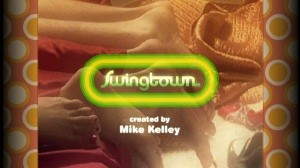

Extras:
A modest buy enjoyable bunch of extras completes the package. The Spirit of '76: The Making of Swingtown (22:19) takes a behind-the-scenes look at the creation and production of the series. The entertaining extra is filled with comments from a lot of producers about the show, the set and wardrobe design, and the cast--but the input by the actors is (sadly) almost non-existent.
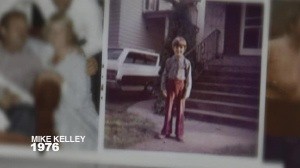
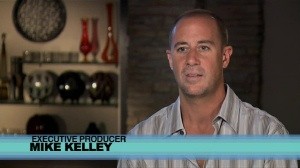
Creator/executive producer Mike Kelley talks about the show's inspiration (his childhood), and proves to be an engaging, relatable and charismatic speaker you'll instantly warm up to. His natural smile is infectious, and you get a sense of his genuine love for the project: "I would like people to take away from the show that they are the ones in control of their lives, and that to make brave choices for yourself is not just your privilege, but it's kind of your duty--and that when you do those things, it inspires the people around you. That's what we want for the people we love--you want everybody to be happy. So let them see that, and let them follow suit."

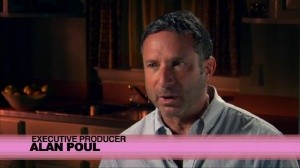
CBS Entertainment president Nina Tassler chimes in with why she fought for the show, a decision that surprised Alan Poul, another passionate executive producer: "We had developed a show for cable...as we were in the process of developing it, (she) came in and said, 'We want the show for CBS.' And we were like, 'What are you on?!'" Poul also notes that by having the Millers swing in the first episode, it took the focus off the sexual tension, "which is never what we wanted the show to be about." He adds it was a challenge having to overcome the potential tendency from the audience to see swingers as predatory.
He also wanted to make sure viewers related to Susan, thus reinforcing the fact that the show didn't have salacious intent: "If you're not on her side when she takes the Quaalude, then we don't have a show. That level of emotional honesty and complete lack of artifice, that's a great thing to be able to watch."
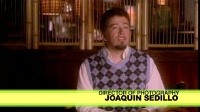


Have a Nice Revolution: Sex & Morality in 1970s America (12:23) continues the commentary from the producers, with a focus on the counter-culture climate in the 1970s (something crucial to the series), with a focus on what it was like for women in that era. A too-short gag reel (3:36) provides a funny look at some blunders (it's particularly hysterical to see Miriam Shor break character). Audio commentaries from Kelley and Shor are also provided on the first and last episodes, and the two provide more insights about the series--and do a good job of engaging the listener.



Also here are eight short deleted scenes (three each from episodes 1 and 2; one apiece from episodes 4 and 13); nothing too memorable, although one scene has a TV newscast clip that makes me wonder if a mysterious subplot was considered but ditched. Trailers round out the package.
Final Thoughts:
A mix of '70s suburban angst, female empowerment and sexual experimentation, Swingtown is a fun look at the "Me Decade" that slowly but surely makes you care about its characters. While not always relatable and not always realistic, it's just plain fun--and pushes the envelope for a network show. So just lighten up and enjoy, okay? Sadly, it looks like Season 1 is all we'll ever see of the series, which would have stood a much better chance of survival on a cable channel. So while I'm left wondering what could have been with the increasingly complicated lives of these interesting individuals, I'll light a candle and listen to "Go Your Own Way". Still, this quickly maturing show with unfulfilled potential comes Recommended.
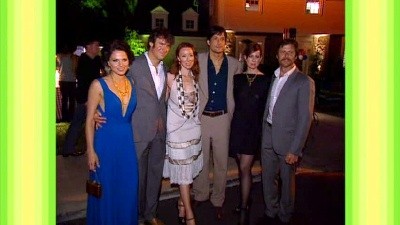
|
| Popular Reviews |
| Sponsored Links |
|
|
| Sponsored Links |
|
|
| Release List | Reviews | Shop | Newsletter | Forum | DVD Giveaways | Blu-Ray | Advertise |
|
Copyright 2024 DVDTalk.com All Rights Reserved. Legal Info, Privacy Policy, Terms of Use,
Manage Preferences,
Your Privacy Choices | |||||||









